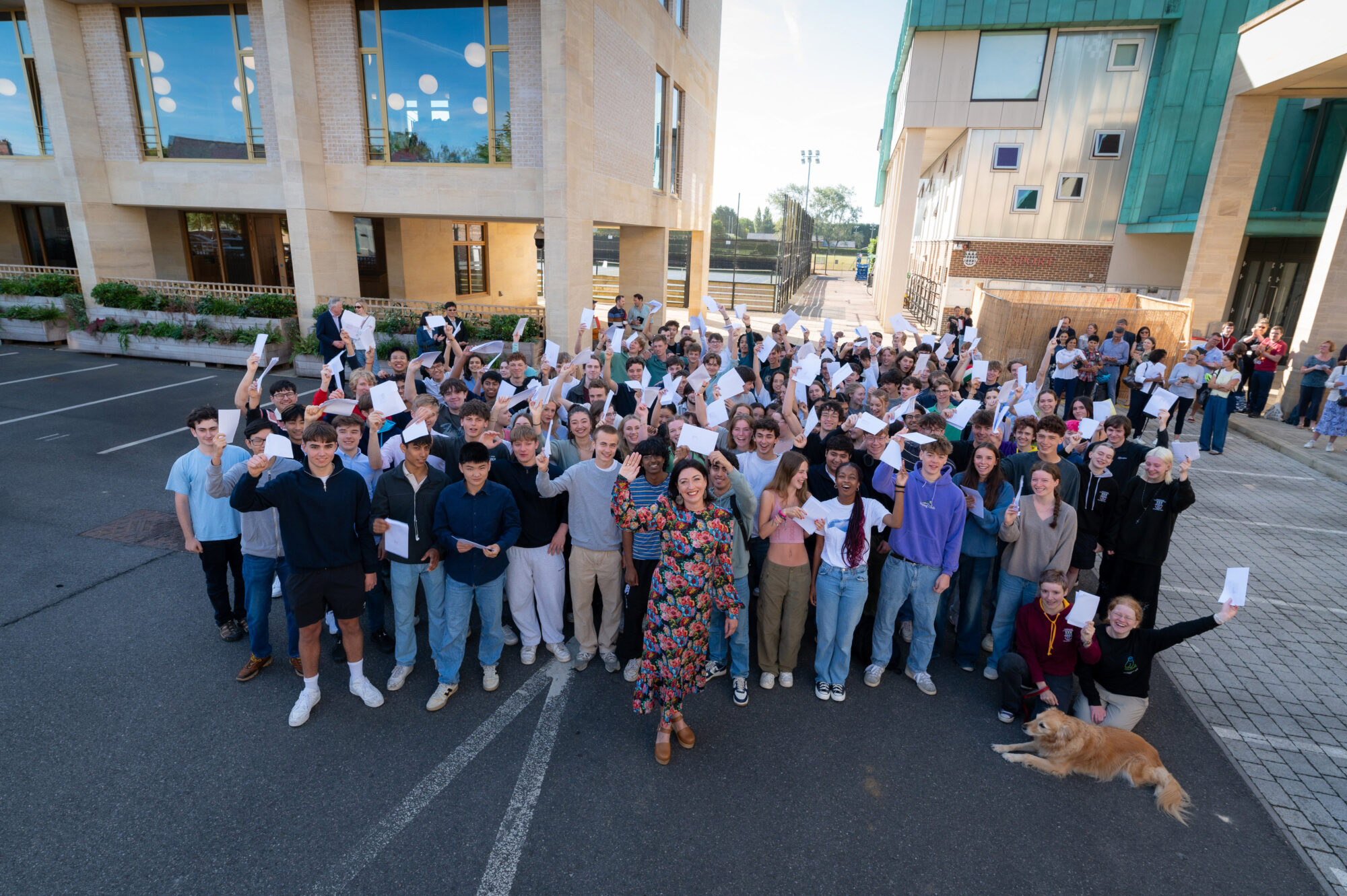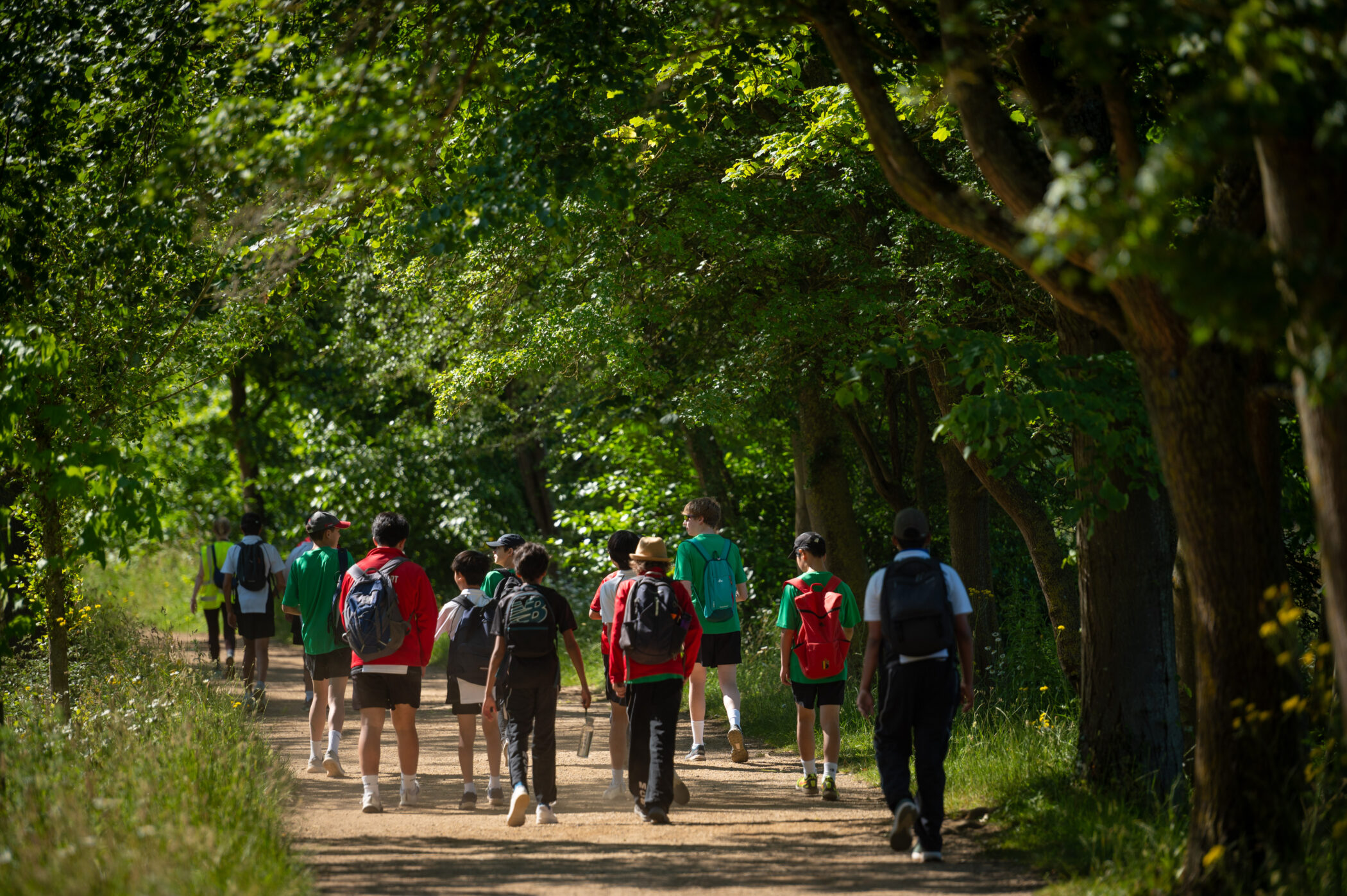The mood at school today is sombre and reflective. This morning we held a memorial chapel service in Big School, not only to honour the life and memory of the Queen but also to start working through the sadness and some of the implications of her death with our pupils.
Queen Elizabeth II was the longest reigning monarch in British history. How are our pupils to begin to make sense of her passing? She was the Queen longer than many of their grandparents have been alive, and at 96, she was likely to be older than anyone they know.
In purely personal terms, her death is difficult to comprehend, though perhaps the recent marking of her Platinum Jubilee will provide some context.
But the Queen’s body was not merely a personal one: she embodied the nation. When we speak of the body politic, we are speaking of power which issues from the monarch. Again, this is a strange concept for many of our pupils to grasp.
When Princess Elizabeth became Queen in 1952, there was a national telephone network, the BBC – which meant the wireless aka the radio to most people – and most communication was via Royal Mail. Now, we receive information in ways which are or seem unconnected from a national or government context. The Queen’s head might be on all stamps, but it is not on our WhatsApp messages.
It is hard for us to fully comprehend the changes that she has witnessed and that she has in part shaped. Two examples illustrate this: the first is Princess Elizabeth between the ages of 14 and 19 during the Second World War. With the outbreak of war in 1939, Elizabeth and her sister Margaret were moved to Windsor Castle. From there she made the first of her radio broadcasts in 1940, reassuring the children of Britain who had been evacuated. She made her first public appearance inspecting troops in 1942.
In 1945, she joined the Auxiliary Territorial Service to help with the war effort. She trained with other women as a driver and mechanic, skills she continued to deploy on her estates. A woman driving a Land Rover was pretty unusual in the 1940s – and as for a monarch driving herself? Where do we begin?
She and her sister Margaret were also allowed to mingle anonymously among the crowds during Victory in Europe Day in May 1945. This could never happen now.
With the death of the Queen, that shared understanding about what is of value in the UK feels ever more uncertain.
Master Helen Pike
I focus on this early part of her life because for many of us, the Queen has come both to be, and to represent, a bridge between the present day and the post-war consensus which brought us the NHS and universal access to free education for everyone until the age of 16, among many other things. With the death of the Queen, that shared understanding about what is of value in the UK feels ever more uncertain. We are going to need to be poised to navigate these uncertainties alongside our pupils in the months and years ahead.
Which brings me to the second example of the Queen’s ability to adapt to changing times: the death of Princess Diana in 1997. At first, the monarch observed protocol and did not treat Diana as a member of the Royal Family, because she was divorced from the heir to the throne. But the Queen responded to the national outpouring of grief, she appeared in public to inspect the flowers and tributes and to speak to the well-wishers, and she attended a state funeral for the newly-dubbed People’s Princess.
Above all, the Queen’s life was one of service. Until recently, she undertook more than 400 engagements every year. I met her when I was an undergraduate at Christ Church, where she is the College Visitor. She asked me her well-known question – ‘what do you do?’ – delivered, of course, with twinkly gravitas. Her equerry and ladies in waiting were great fun. She last visited us here at Magdalen College School in the year 2000, when she met a number of Junior School boys.
We shall not see the like of Queen Elizabeth II again. Hers was a life of privilege, yes, and also a life of duty and service. The Queen symbolised and embodied a great deal – and she was also a great character. We are now in a period of national mourning, and we shall commemorate our late monarch. And, as ever, we await events.
 MCS ranks among the top independent secondary schools in The Sunday Times Schools Guide 2024, placed seventh nationally and third in the Southeast.
MCS ranks among the top independent secondary schools in The Sunday Times Schools Guide 2024, placed seventh nationally and third in the Southeast.

 28 of our pupils achieved 10 or more 8 or 9 grades in 2024.
28 of our pupils achieved 10 or more 8 or 9 grades in 2024.
 Your donations contribute over £150,000 a year to bursaries as well as building an
Your donations contribute over £150,000 a year to bursaries as well as building an 




